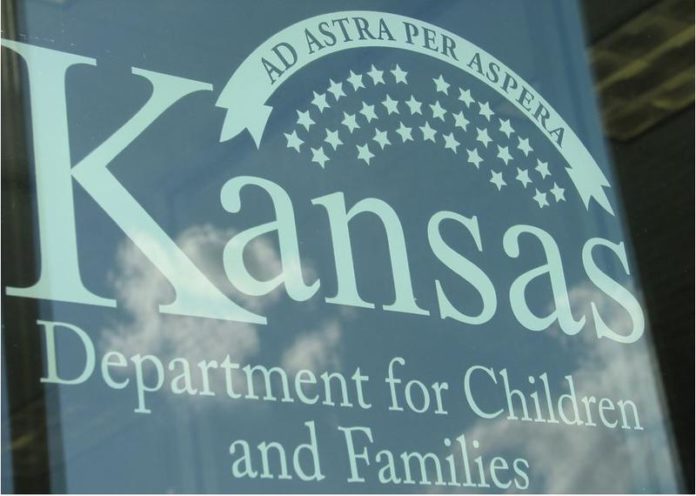Gov. Laura Kelly’s administration came out on Tuesday against a House proposal that would broaden the work and job-training requirements for older Kansans to qualify for food assistance.
The Department for Children and Families said there were serious legal questions about a bill extending work requirements for able-bodied adults without dependents from 49 to 59 years old. The requirement now applies to able-bodied adults 18 to 49 years old.
The bill, as proposed, would require someone 50 to 59 years old to work at least 30 hours a week or participate in a mandatory employment and training program.
The bill is backed by the Opportunity Solutions Project, a conservative think tank incorporated as a 501(c)(4) organization and headquartered in Tallahassee, Florida.
Steve Greene, the group’s lobbyist, told lawmakers Tuesday that the bill would be one way of addressing the workforce shortage in Kansas.
Citing federal data from the Bureau of Labor Statistics, Greene noted there are 97,000 open jobs in Kansas.
He said there are establishments around the state that are now closed during normal business hours because of a labor shortage.
He said the legislation is intended to build on a law enacted last year that required able- bodied adults who are 18 to 49 years old without dependents to work at least 30 hours a week or participate in a mandatory employment and training program.
Gov. Laura Kelly vetoed the requirement, saying it would burden families. The Legislature later overrode the governor’s veto.
Greene said the number of able-bodied adults without dependents receiving food assistance declined by about 1,000 after the new job requirements were started last year.
“That is being caused, hopefully, by good reasons – people are going out and getting jobs and participating,” he said.
“What this bill does is build on that success,” he told the committee.
In written testimony, the administration said the bill would violate federal food assistance regulations because the state cannot impose additional restrictions on federal food-assistance benefits.
Failure to comply with federal regulations and definitions could result in federal funds being withheld, including money to administer the food-assistance program and benefits passed to families.
During fiscal year 2022, Kansas received more than $30 million in federal funding to administer the food-assistance program. The state receives more than $500 million to go to about 95,000 Kansas families.
Greene acknowledged the concerns raised by the Kelly administration.
He said the issue is centered on a provision in federal law that limits benefits to able-bodied adults to three months within a three-year period if they’re not working at least 20 hours a week. Exceptions are allowed for anyone under 18 and over 50.
The bill did not provide an exception for anyone over 50. Green said the bill could be tweaked so it complies with federal law.
The bill drew opposition from AARP Kansas, the Kansas National Education Association, Kansas Action for Children and Kansas Appleseed, among others.
Glenda DuBoise, Kansas state director for AARP Kansas, said the bill would hinder seniors’ access to food assistance and make it even “harder for them to afford groceries they need to live healthy, active lives.
“Loss of these crucial benefits due to a senior’s inability to comply with these requirements would be devastating for those who are currently struggling, particularly during a time when inflation and rising food prices are stretching household budgets,” she said.
Republican state Rep. Susan Humphries of Wichita praised the underlying premise of the legislation.
“I’m a firm believer that work is empowering to people, or work training is empowering to people,” Humphries said.
“From what I’ve seen with DCF, I didn’t realize how much they bend over backwards to help people get involved in these programs,” she said.
“I’ve been super impressed with their efforts to help people be involved.
“I’m kind of just struggling a little bit with assuming that 50 to 59 year olds are going to have trouble with these requirements,” she said.













